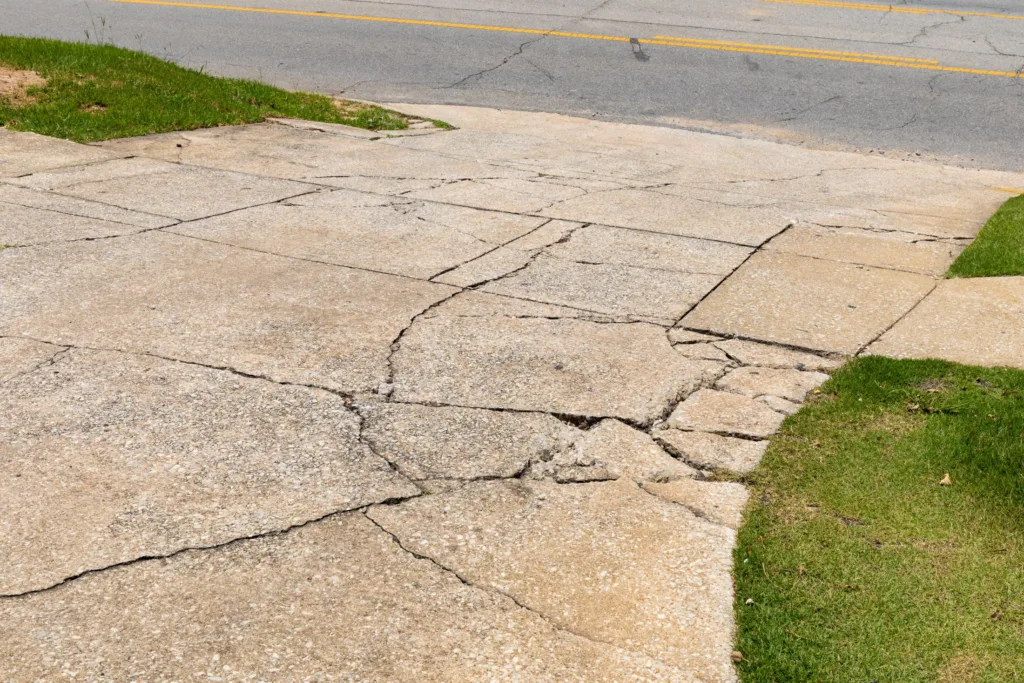Your driveway is more than just a path to your home; it’s an essential part of your property’s overall curb appeal and functionality. Over time, wear and tear from weather, vehicles, and other factors can take a toll on your driveway’s appearance and structural integrity. When facing driveway issues, the question arises: Should you repair or replace it? Keep reading to explore the factors to consider when making this decision.

Repairing Your Driveway
Cracks and Potholes
Small cracks and potholes are common driveway issues. They can often be repaired without the need for a complete replacement. Surface patching and filling materials are available at most home improvement stores. If the damage is minimal and hasn’t affected the driveway’s foundation, these DIY solutions can be cost-effective and relatively simple.
Sealcoating
Regularly applying a sealcoat to your asphalt driveway can extend its life and enhance its appearance. Sealcoating acts as a protective barrier against UV rays, oil spills, and water damage. It’s a preventative measure that can delay the need for extensive repairs or replacement.
Resurfacing
If your driveway’s surface has multiple small cracks or is showing signs of wear, resurfacing may be a viable option. Resurfacing involves adding a new layer of asphalt or concrete over the existing driveway. This not only repairs minor damage but also gives your driveway a fresh, like-new appearance.
Drainage Issues
Poor drainage can lead to water pooling on your driveway, which can weaken the structure. In some cases, addressing drainage problems by installing proper slopes or drains may be enough to rectify the issue without having to replace the entire driveway.
When to Consider Replacement
Deep Cracks and Structural Damage
If your driveway has deep cracks or extensive structural damage that extends beyond the surface, repairs may not be sufficient. A compromised foundation may require complete replacement to ensure the driveway’s longevity and stability.
Age and Wear
Driveways have a finite lifespan. Depending on the material, an asphalt driveway may last 20-30 years, while a well-maintained concrete driveway can last even longer. If your driveway is approaching or exceeding its expected lifespan and is showing signs of extensive wear, it might be time to consider a replacement.
Frequent Repairs
If you find yourself repeatedly patching or repairing your driveway due to ongoing issues, it may be more cost-effective in the long run to invest in a new driveway. Frequent repairs can add up, and a replacement can provide a fresh start with fewer maintenance concerns.
Desire for a New Look
Sometimes, the decision to replace a driveway is driven by aesthetics. If you want to change the appearance, design, or material of your driveway, a replacement allows you to create a fresh and modern look that aligns with your preferences.
Local Regulations
Check your local regulations and building codes. Some areas have rules regarding the condition of driveways, and if your driveway is in significant disrepair, it may be necessary to replace it to comply with local requirements.
Premier Maryland Asphalt Paving Company
There are a variety of factors that go into determining whether to repair or replace your driveway. No matter your decision, the paving experts of Got Paving are always here to help. We provide high-quality asphalt paving for homeowners and businesses throughout Maryland and can help you determine the best course of action. Contact us now to get started with a FREE estimate.



